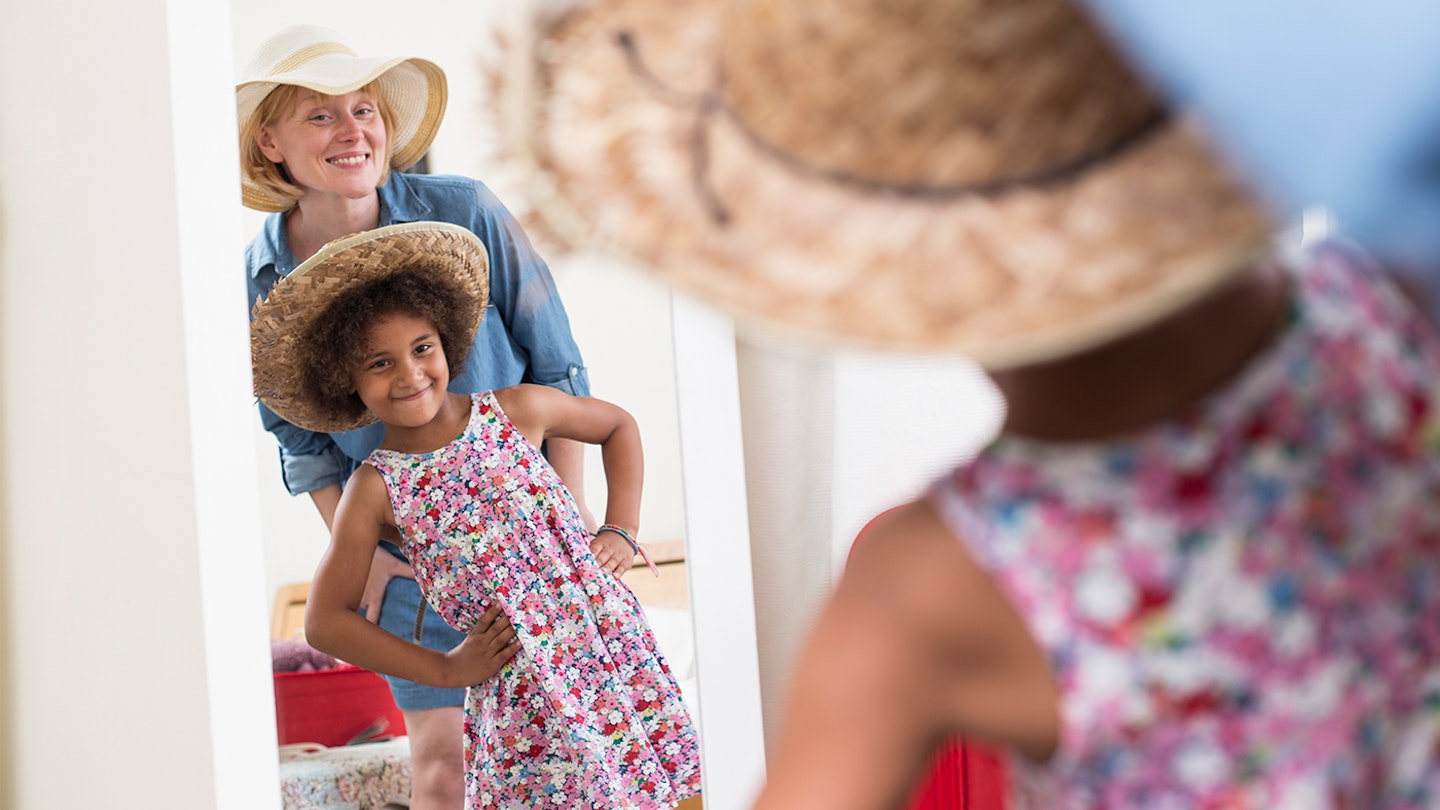The way we think and feel about our bodies (our body image) is fundamental to everything we do, and the same is true for children. Positive body image isn't just about liking what you see when you look in the mirror but feeling at home and comfortable in your body. We call this "embodiment".
When a child experiences body image issues it can disrupt this feeling of embodiment - of feeling at home and at peace in their body. This can then have a huge impact on how they treat their body, how they show up in the wider world, and also in how they treat the bodies of those around them.
Studies show, for example, that children can display anti-fat bias as young as three years old, and that higher-weight children are 63% more likely to experience bullying at school. This is why body image isn't a "me" issue, but a "we" issue. It's not just about raising kids who treat their bodies with kindness, but about raising kids who treat the bodies of others who don't look like them with kindness too.
A child who feels confident in their own body, and who can celebrate body diversity and know that all bodies are good bodies, is more likely to engage in health-promoting behaviours, have positive self-esteem, to raise their hand in class (yes, really!), to take part in sports and PE and (and this is the most important bit in my opinion) to treat other children with kindness and be an advocate for those with bodies that don't look or function like their own.
Why is it important to have body image conversations with children?
Typically, we've been culturally conditioned to think of body image as a topic that only impacts teenagers, and predominantly impacts girls. But we know this isn't the case. Research shows children as young as three can display anti-fat bias, 34% of five-year-olds talk about wanting to diet, and the number of boys feeling like their body isn't good enough is rapidly rising and catching up with the levels of body dissatisfaction displayed by girls. We also know that gender non-conforming children can experience body image issues too.
This idea that it's only something we need to think about if we have a teenage girl in the house is really out of date and, actually, really harmful. It's also super important to understand that many of the ideas we hold about our own bodies (and the ideas our kids hold about theirs) and the bodies of those around us, will have been informed by things we heard, learned or experienced in childhood. Children aren't immune to societal messaging about "good" and "bad" bodies, and they get it right from toddlerhood, either through the lack of body diversity in their favourite Disney film to the jokes about Daddy Pig's tummy in their favourite cartoon, to the messages they're learning about food and health in nursery and pre-school.
In order to build up a strong resilience to this type of messaging, as well as raise children who are advocates for others, we need to be aware of this issue early on and start planting the seed for positive body image when they are still babies and toddlers. It really is never too early!
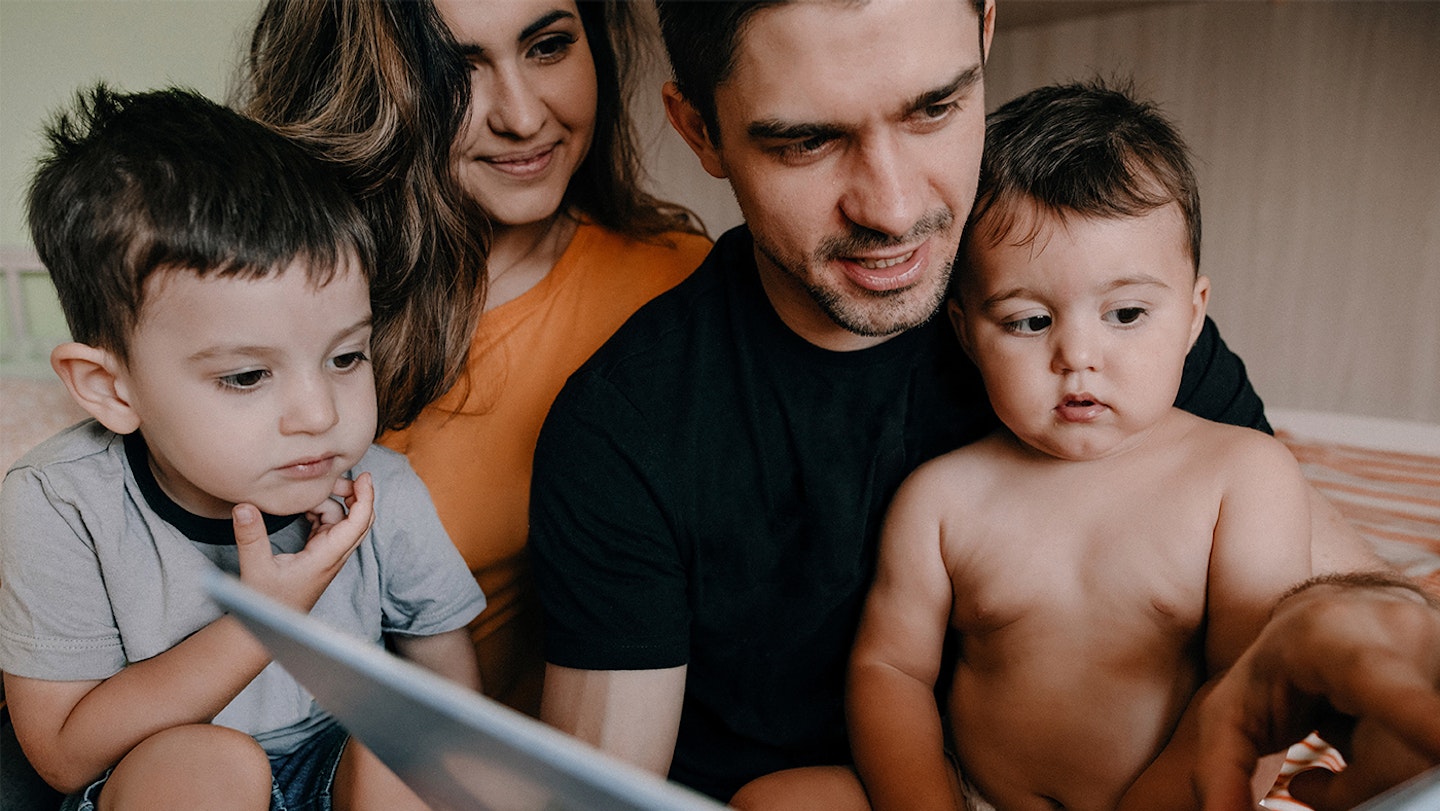
How should I discuss body image with my child?
When it comes to body image, the doing is just as important as the saying. So being mindful of how you talk about bodies - including your own - in front of your child is really important. This includes interrogating some of the biases and ideas you may hold about health, weight and what constitutes a "good" or "bad" body. It's no good telling your child to "love their body" if you are pulling your own body apart in front of them at the same time. Ultimately, we can't teach children to love and respect their own body and celebrate all bodies, if we still give them a standard of "good" and "bad" bodies. We need kids to learn early on that all bodies are good bodies, and that all bodies are worthy bodies.
A really great way to do this with younger kids is through picture books, specifically ones that celebrate body diversity and tell the stories and representation of children with a range of bodies that they may not get to see in their favourite cartoons. Some of my favourites are Bodies Are Cool, What Happened To You and Big.
Just as important as the saying and doing is the not saying and the not doing. There's incredible power, for example, in just not voicing commentary about the way someone looks, or thinking of other compliments that aren't based on appearance, or just keeping that body shaming thought (either about your own body or someone else's) to yourself rather than saying it out loud.
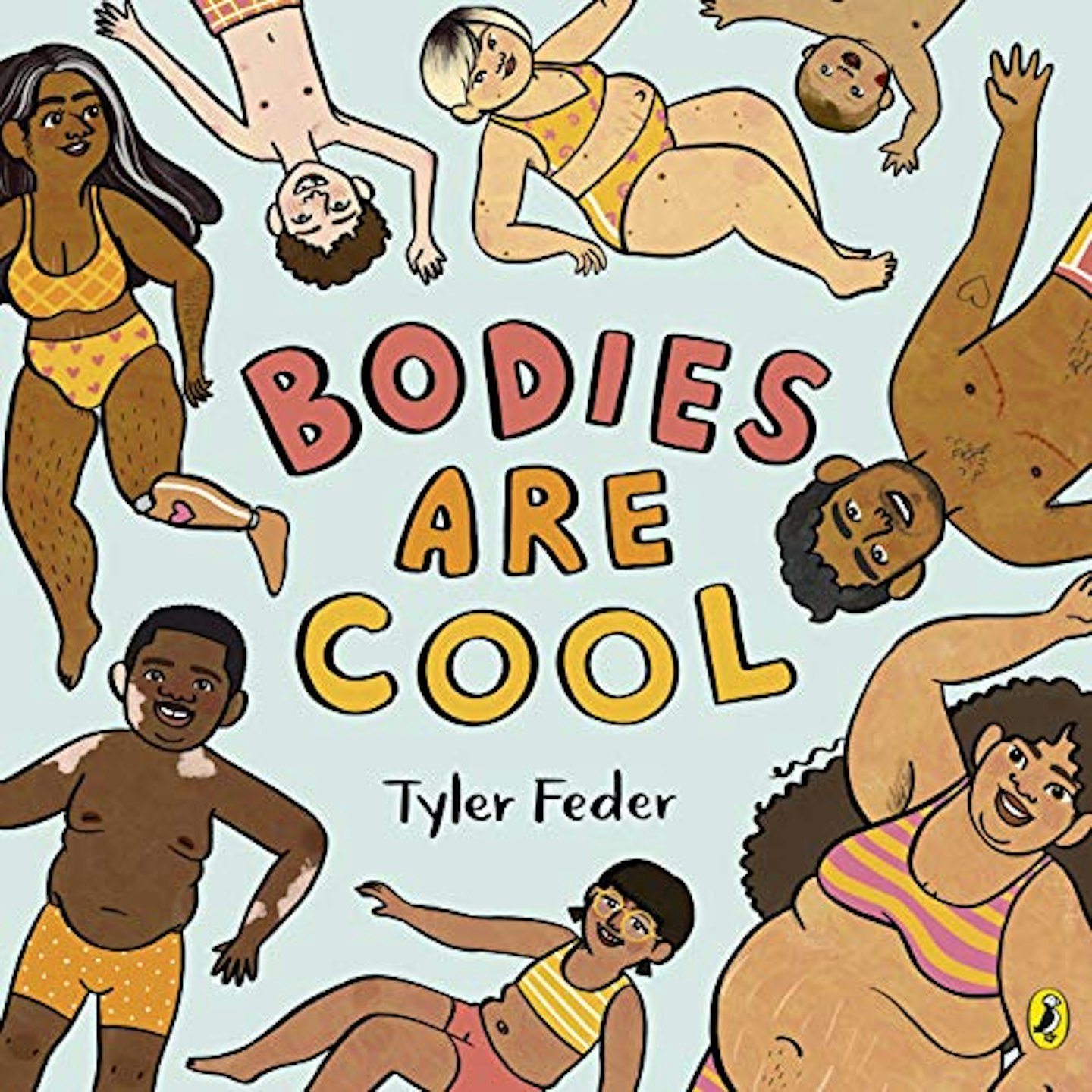
This heart-warming, inclusive book is filled with detailed and friendly illustrations and is a celebration of every kind of body that exists in the world.
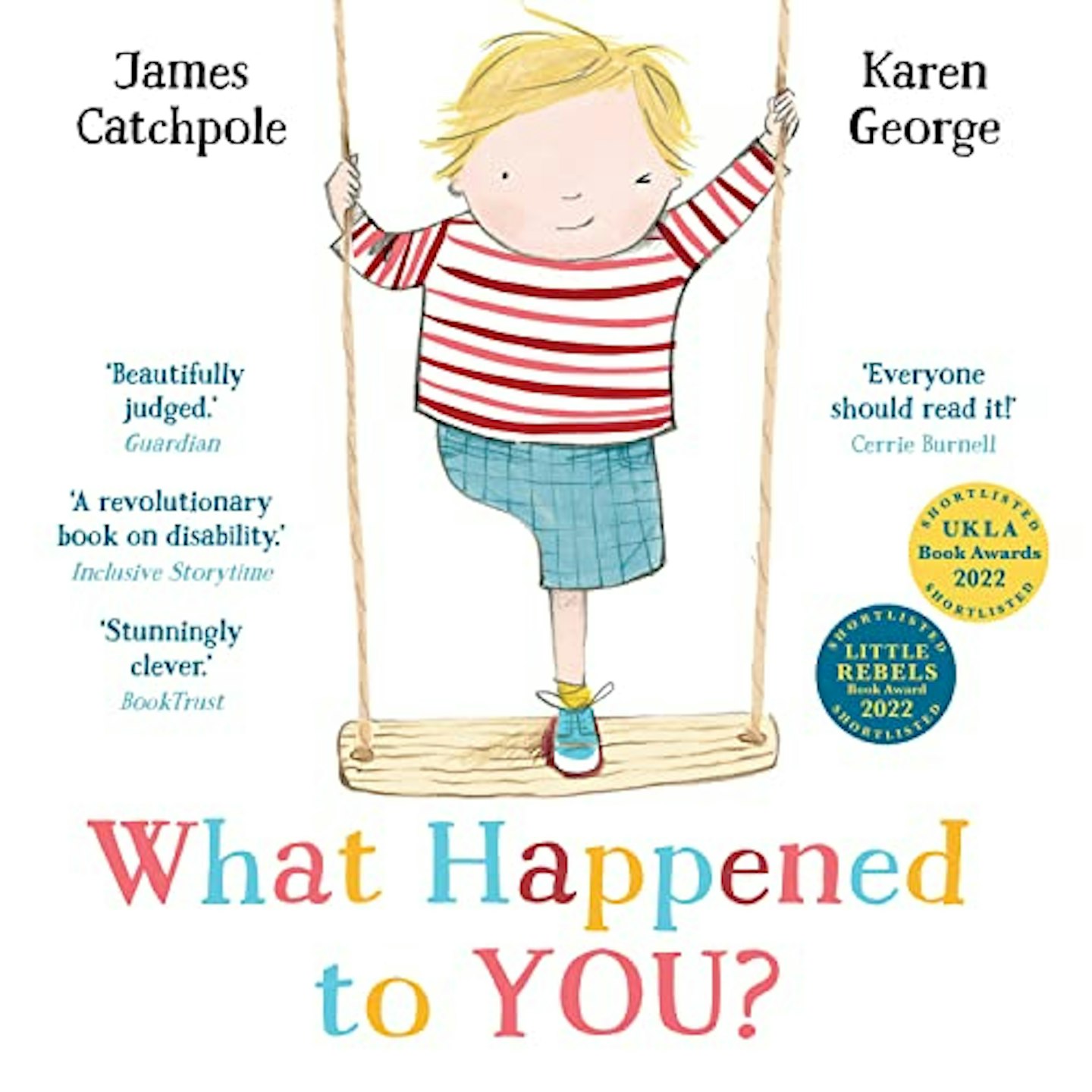
A ground-breaking, funny story that helps children understand what it might feel like to be seen as different.
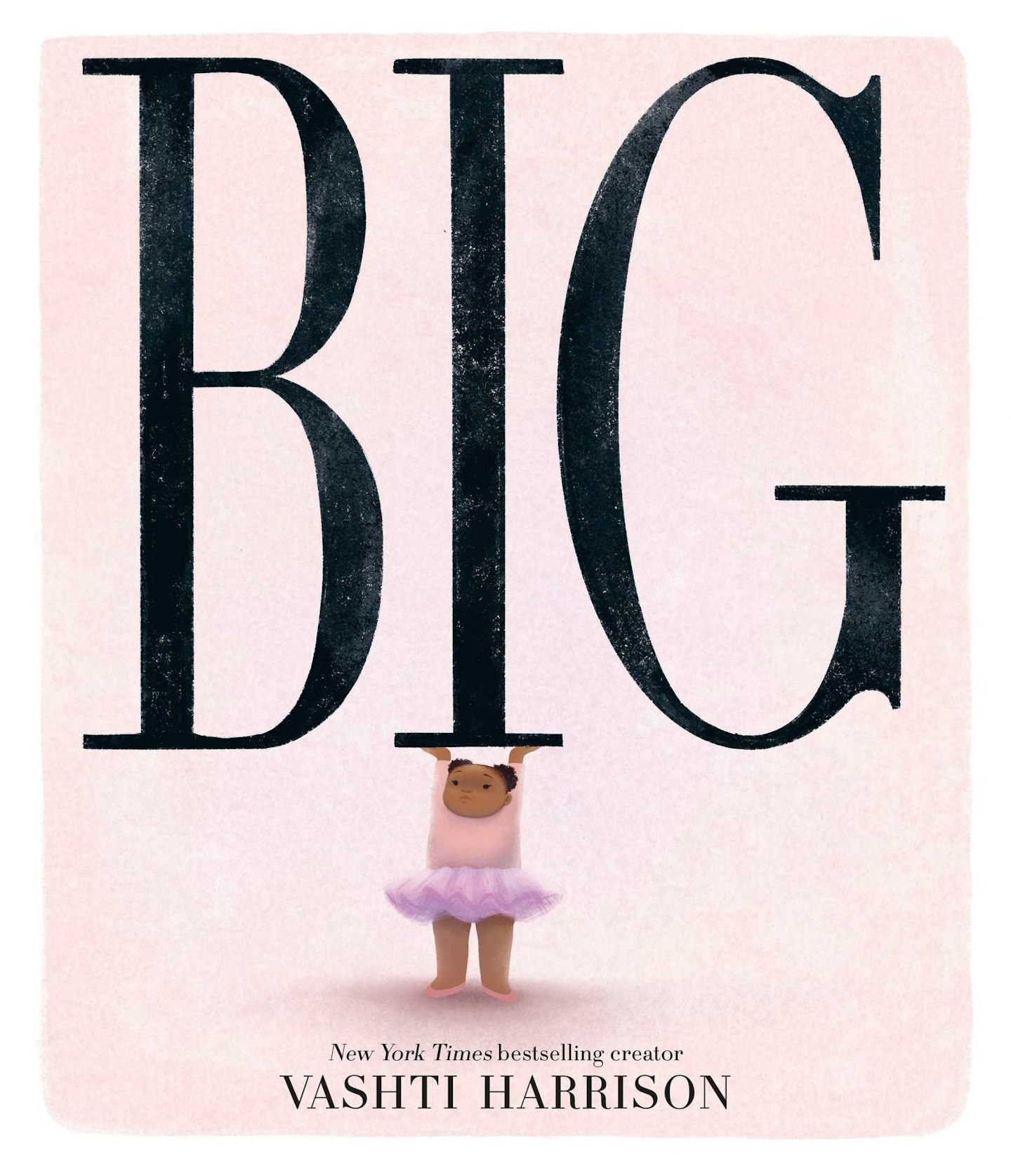
With beautiful illustrations and a gatefold flap, this quietly reassuring story explores the experience of being big in a world that celebrates small, promoting body positivity and self-acceptance in young readers.
How can I prevent body image issues in my child?
Sadly, there is no guarantee, even if you do all of the above, that your child will never develop body image issues. Body image is an incredibly complicated and nuanced thing, and it changes all the time, just as our bodies do. I think it's important to be open with children about the challenges of growing up in a culture that constantly teaches us to view our appearance as the most important thing about ourselves, and is constantly holding up new standards to aspire to when it comes to the way we look and the shape of our bodies. Even if you have the most body-positive home you can't protect children from the messages they may receive about bodies outside of the home.
What you can do, though, is provide a safe space to land when these messages inevitably come, and be a thoughtful and open place for your child to process some of these thoughts and feelings. We need to get comfortable with not always having the answers, and with being open with our kids that this stuff may have hurt us in the past too and that we're still learning about it ourselves. This can be reassuring for children to hear, and can actually open up a dialogue.
With all that in mind, there are some basics that I think are important to consider and may feel counter-intuitive as they may go against everything you've previously thought about bodies. This includes neutralising the word "fat". Fat is not a bad word, it's a simple descriptor, like tall or short. When we ban the word fat we uphold it as a "bad" word and give it power to be used as an insult. We also need to get strict about not tolerating body-based comments or insults - a favourite saying in my house is "my body, my rules" and this speaks to the idea that if it's not your body, it's not your business and you shouldn't be talking about it. On a positive note, celebrating body diversity is a great way to help children see the value and beauty in all bodies. This can be through picture books, body-positive TV shows and art.
How much is the media to be blamed for body image issues in children?
It's really easy to blame the media for everything, but I get very frustrated when I hear the rising number of children's body image issues being solely blamed on the media and social media. This is because it removes the responsibility and accountability from us as parents, teachers and caregivers, denying our role in all of this. Not only is it really convenient as it prevents us from really changing and challenging our own behaviour, but it's also disempowering as it means we're laying all hope on creating change with the larger institutions we don't have much power over - unless you're Mark Zuckerberg or the owner of Disney!
Three-year-old children aren't using TikTok, but they are getting lessons at nursery and pre-school about "good" and "bad" food and absorbing the message that if they eat too much chocolate they might get a "fat tummy" or "be unhealthy". These are messages steeped in diet culture, and they are being delivered by some of the most trusted adults in a child's life, so they are arguably more damaging or harmful than what a child might see on TV.
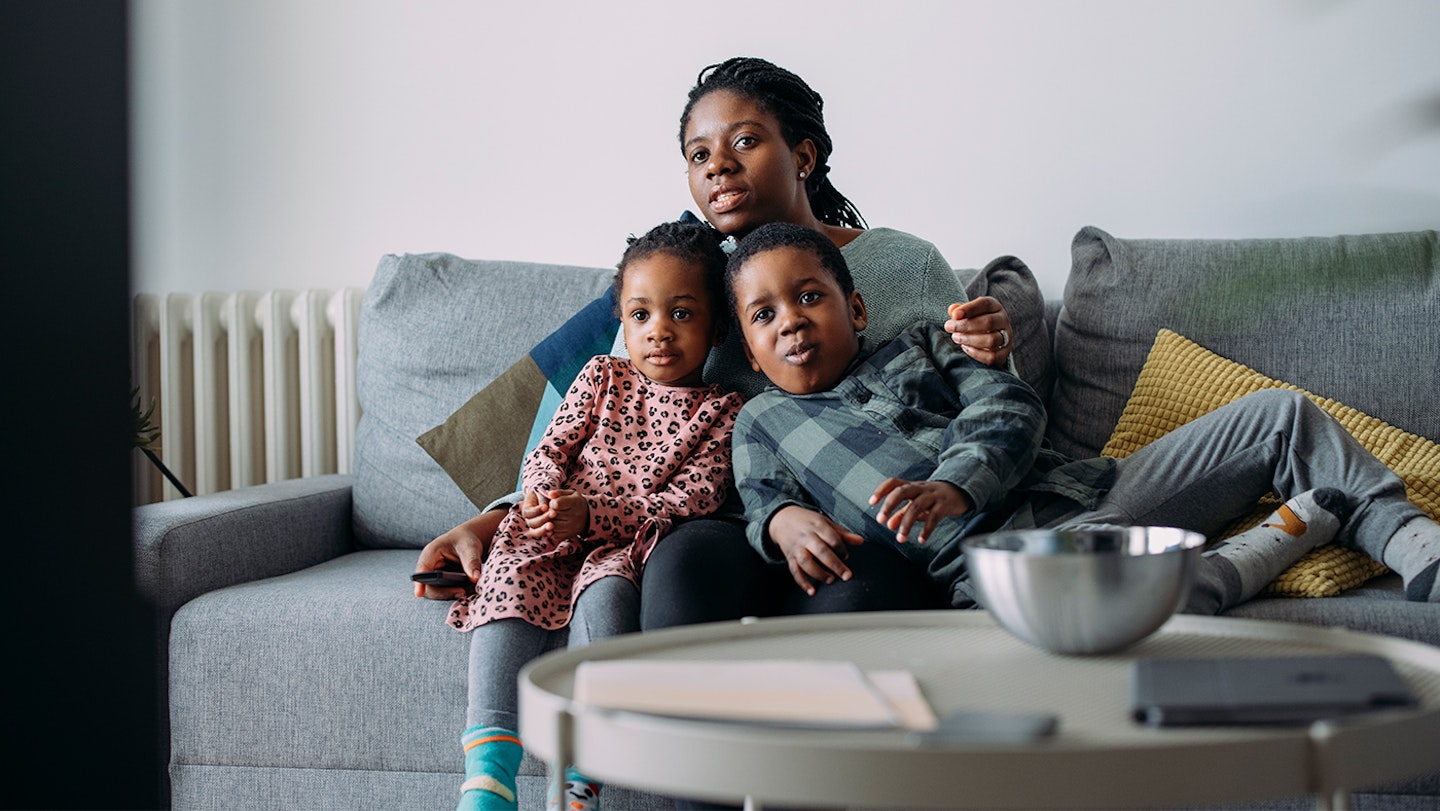
Should media consumption be monitored?
Rather than banning certain platforms or TV shows, we could give our kids the tools to think critically about them instead. This doesn't mean we don't need to still have clear boundaries and guidelines in place (I am not suggesting you go and hand your three-year-old a phone with unmitigated access to social media!) but it might mean that instead of saying "You can't watch that", we watch it with our child and pause it in certain places asking them questions to help them critically about what they're watching. This can be as simple as "How might Daddy Pig feel when Peppa makes fun of his tummy?" to more complex, such as "What message might someone take from seeing Ursula, the baddie in The Little Mermaid, as a fat character? What else do you notice about the characters' body types in this film?" etc.
How can I be a positive body role model for my child?
First of all, I think it's important to recognise that we can't unlearn a lifetime of negative body messages overnight. Not only does this put intense pressure on ourselves but it also removes any opportunity for self-compassion. We've all been indoctrinated to think of bodies in this way and it's natural that it takes quite a bit of unlearning to start thinking differently. This means that even if you're not feeling incredible about your body right now, you still have the power to help your child feel good in their own body - even if it means just not voicing some of those negative body statements in front of them.
I think it's also really important we bring dads into the conversation too. There is a lot of pressure on mums to "wear the bikini" or "get in the photo" and these are lovely sentiments on the surface, but the risk is we make raising body-confident kids all the work of the women - women who have likely been conditioned to think of their body in a negative way right from childhood. It can help children to start to think of what their body can do instead of how it looks, and this includes showing them what it looks like to live an embodied life and do things for how it makes our bodies feel instead of how it makes them look. Importantly though, it's also important to help kids know that how their bodies look and what their bodies can do does not define their value as a person. Complimenting the whole expansive aspect of a child's personality and being ("You are kind! You are brave! What a good friend you are!" etc) can be a great way to help do this.
What steps can a parent take ahead of their child starting school?
If your child is going to a state-funded school you'll need to be aware that, unless you opt-out, they will be weighed in school in reception (and year 6) as part of the National Child Measurement Programme. We have a resource at Body Happy Org to help parents make an informed decision about this. Personally, I choose to opt my daughters out of this, for a myriad of reasons, but being aware that it exists and you do need to opt out if you don't want them weighed, is really important.
Secondly, don't underestimate the power you have as a parent to help support your school in supporting your child to have a positive body image. There are lots of things schools can do to create environments that allow the body image of the kids in their care to thrive, and as a parent signposting to organisations like mine (Body Happy Org) is an incredible act of advocacy for all the children at your child's school.
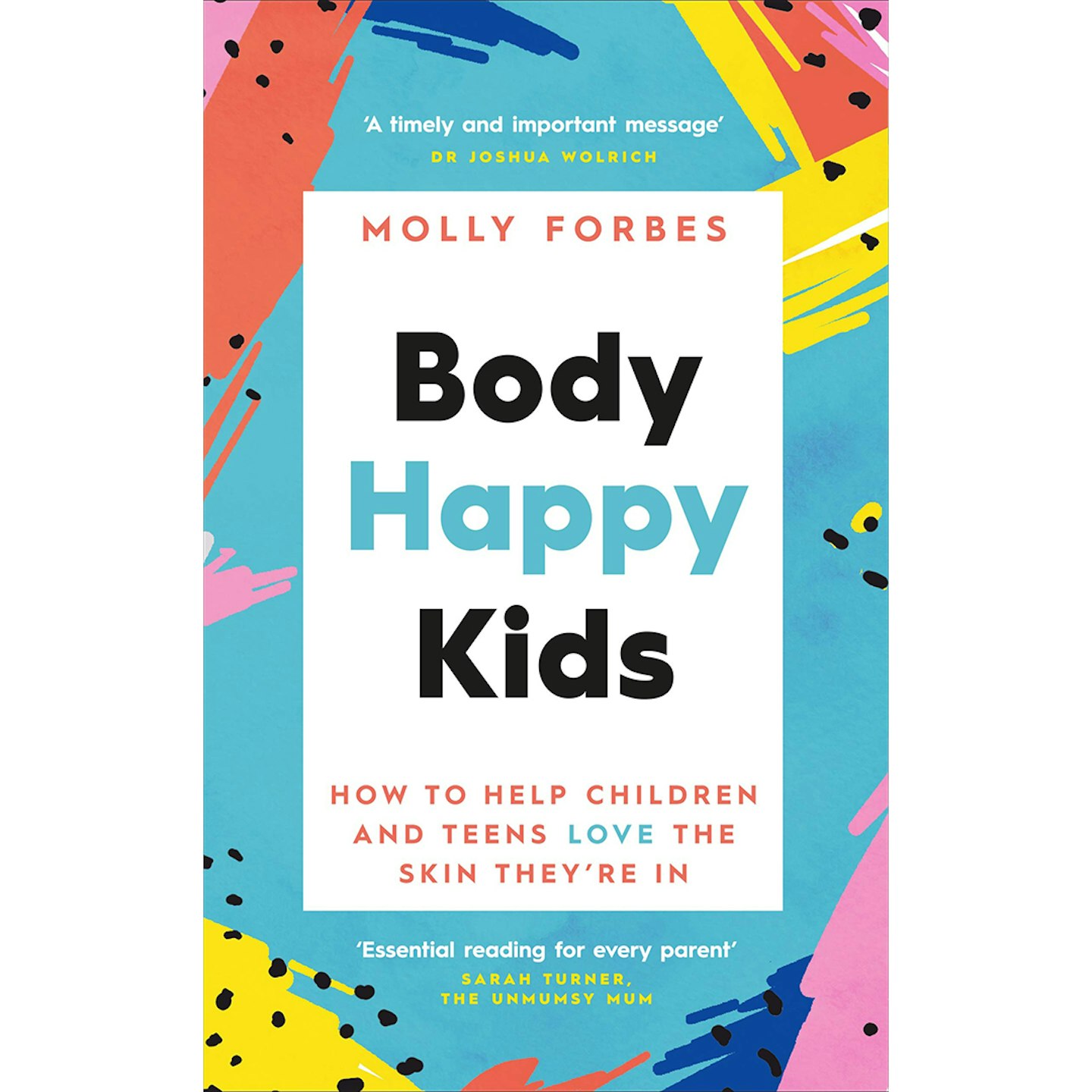
Molly's reassuring and practical guide covers everything you need to help your child to care for their body with kindness, including how to approach good nutrition (without falling for diet culture), how to see the reality behind beauty ideals and how social media can be used to support body confidence rather than destroy it.
About the expert
The Executive Director of Body Happy Org, Molly Forbes is an author, campaigner and journalist. Molly’s book, Body Happy Kids, was published by Vermilion in 2021. As an experienced presenter, journalist and public speaker she has appeared on many outlets including BBC Breakfast, Woman’s Hour, This Morning, Radio 1’s Newsbeat, C4’s Steph’s Packed Lunch and Heart Breakfast speaking about children’s body image, mental health and parenting.
